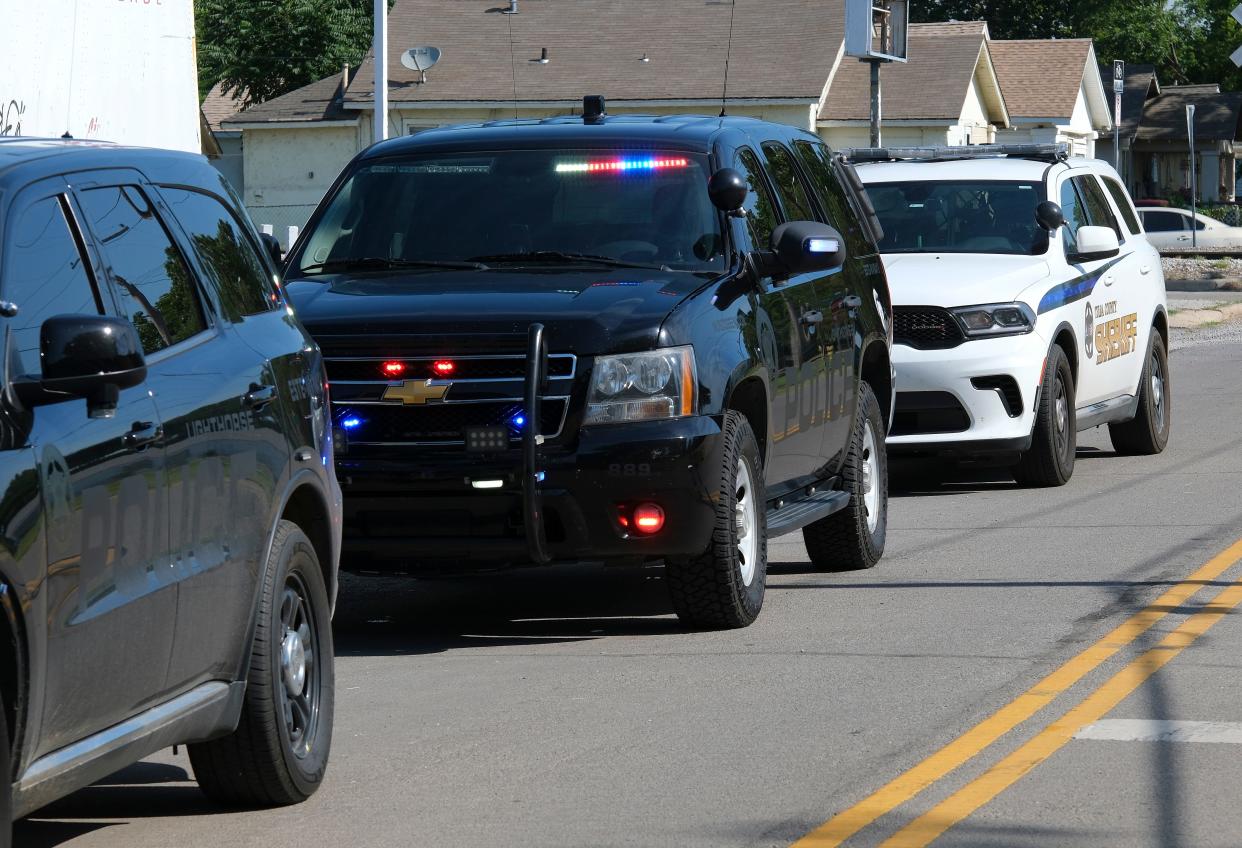U.S. officials: Tulsa is breaking the law by prosecuting Native Americans

U.S. officials moved to intervene this week in a lawsuit filed by the Muscogee Nation over Tulsa’s refusal to stop ticketing and fining Native American drivers.
The federal government contends Oklahoma’s second largest city is violating the law by asserting jurisdiction over tribal citizens on tribal reservations. Nearly all of Tulsa sits within the Muscogee and Cherokee reservations, which gained legal recognition after a 2020 U.S. Supreme Court decision.
Despite the landmark ruling, Tulsa’s municipal court has continued to prosecute Native Americans accused of traffic offenses and other city code violations. State and city courts cannot assert jurisdiction over tribal citizens on tribal lands without permission from Congress — something Tulsa has never received, the U.S. Department of Justice said in court filings Monday in Tulsa federal court.
“A ruling that Tulsa has criminal jurisdiction over Indians in Indian country would disrupt the understanding since the founding that states do not have such jurisdiction and conflict with the statutes and treaties embodying that understanding,” federal attorneys wrote in their request to intervene in the case.
Why the US government is stepping into case between Oklahoma and tribal nations
This is the second time in recent weeks that the U.S. has waded into a case challenging Tulsa’s right to prosecute Native Americans. The federal government stepped into a similar case before the Oklahoma Court of Criminal Appeals in April, filing a brief opposing the city.
In the latest round of filings in the Muscogee Nation case, federal attorneys said the U.S. government should be allowed to intervene because of the significant stakes involved in the dispute. The government said its interests in the case included protecting the rights of tribal nations; defending Congress’ exclusive power over Indian affairs; preventing Tulsa from illegally prosecuting Native Americans; and upholding the rights of treaties that established the Muscogee reservation and gave the tribe “full jurisdiction” over Indians on those lands.
The Supreme Court ruled in its landmark 2020 decision, McGirt v. Oklahoma, that the Muscogee reservation still existed.
More: Muscogee Nation sues to stop Tulsa from prosecuting tribal citizens for traffic offenses
Tulsa officials declined to comment about the federal government’s request to intervene in the ongoing dispute. The suit was originally filed in November by the Muscogee Nation.
David Hill, the principal chief of the Muscogee Nation, described the federal government’s intervention as a significant development.
“The decision by the Department of Justice to step forward on our behalf is an affirmation of what we have said all along,” he said in a statement. “The city of Tulsa is violating the law and tribal sovereignty to the determent of public safety across the city.”
Despite Court of Appeals ruling, Tulsa continued to prosecute Native Americans in city court
Attorneys for the eastern Oklahoma tribe alleged that Tulsa was selectively prosecuting Native Americans accused of violating traffic laws and other low-level crimes that could be tried in the city court.
Tulsa officials had maintained for years that the city court could keep prosecuting tribal citizens under a pre-statehood law passed by Congress. But the 10th Circuit Court of Appeals ruled against the city in June. The Supreme Court declined the city’s request to halt the decision.
Despite losing that case, Tulsa hasn’t stopped prosecuting Native American drivers, the Muscogee Nation contends.
City attorneys have adopted a new legal strategy, arguing that Tulsa has the power to prosecute Native Americans under a 2022 Supreme Court decision. That case, Oklahoma v. Castro-Huerta, affirmed states can share jurisdiction over cases involving Native American victims. It did not directly address cases involving Native American defendants, such as traffic tickets issued to Native drivers.
Tulsa’s attorneys have argued, however, that the Castro-Huerta ruling can be applied more broadly to all cases involving Native Americans, as long as certain conditions are met.
A federal judge declined to consider the city’s new arguments. But they were taken up by Oklahoma’s highest criminal court, which could issue a ruling sometime this year.
Tulsa’s attorneys officials have asked to delay or dismiss the federal lawsuit filed by the Muscogee Nation until the Oklahoma Court of Criminal Appeals can weigh in.
The state case involves a traffic ticket issued to Marvin “Keith” Stitt, the brother of Oklahoma Gov. Kevin Stitt.
Keith Stitt has argued Tulsa had no power to prosecute him, since he is a citizen of the Cherokee Nation and should have been tried in tribal court.
His brother, the governor, has vocally sided with Tulsa and criticized the limits of state powers on reservations. Gov. Stitt held his weekly press conference Friday inside a Tulsa Police operations center in honor of National Police Week. He opened his remarks by citing the “unprecedented challenges” Tulsa police officers have faced since the McGirt ruling. He said it threw a curveball into their operations and introduced new jurisdictional issues.
“Tulsa has had to navigate with professionalism and compassion throughout this whole process,” Gov. Stitt said.
Molly Young covers Indigenous affairs. Reach her at mollyyoung@gannett.com or 405-347-3534.
This article originally appeared on Oklahoman: Tulsa court illegally prosecuting Native drivers, U.S. attorneys say

